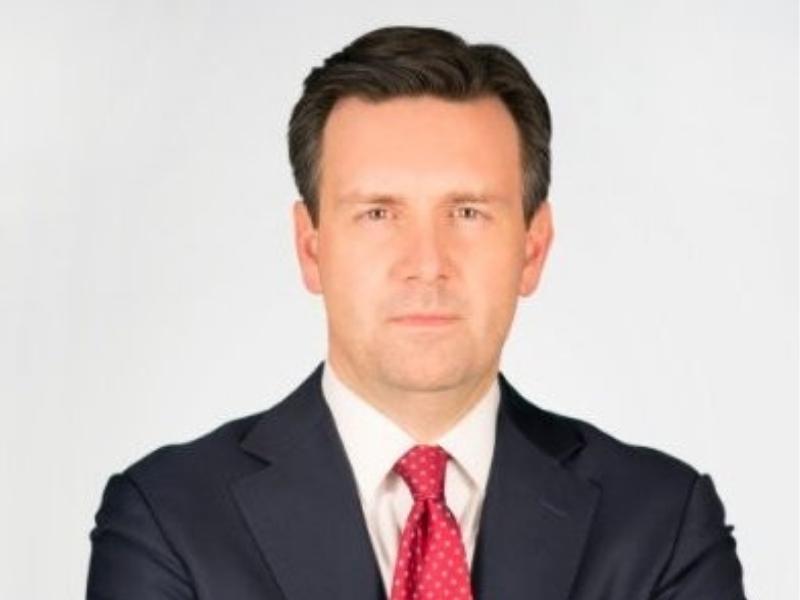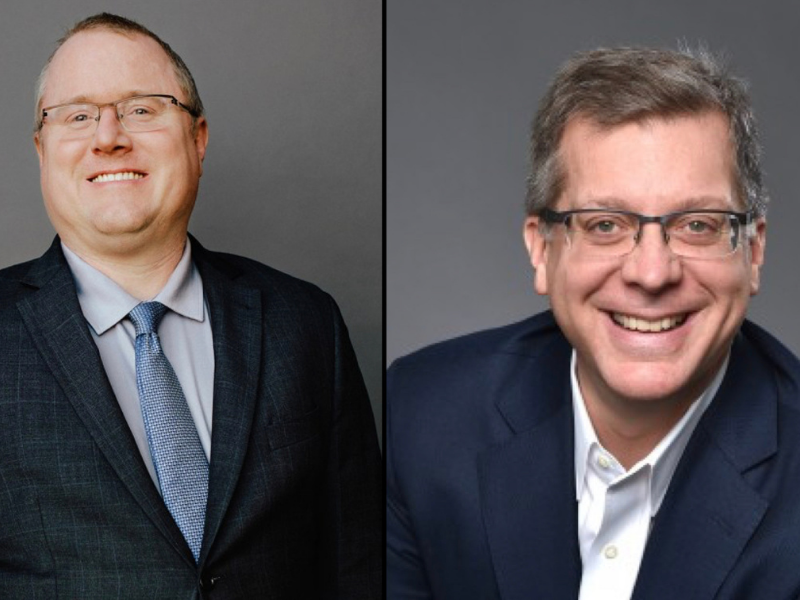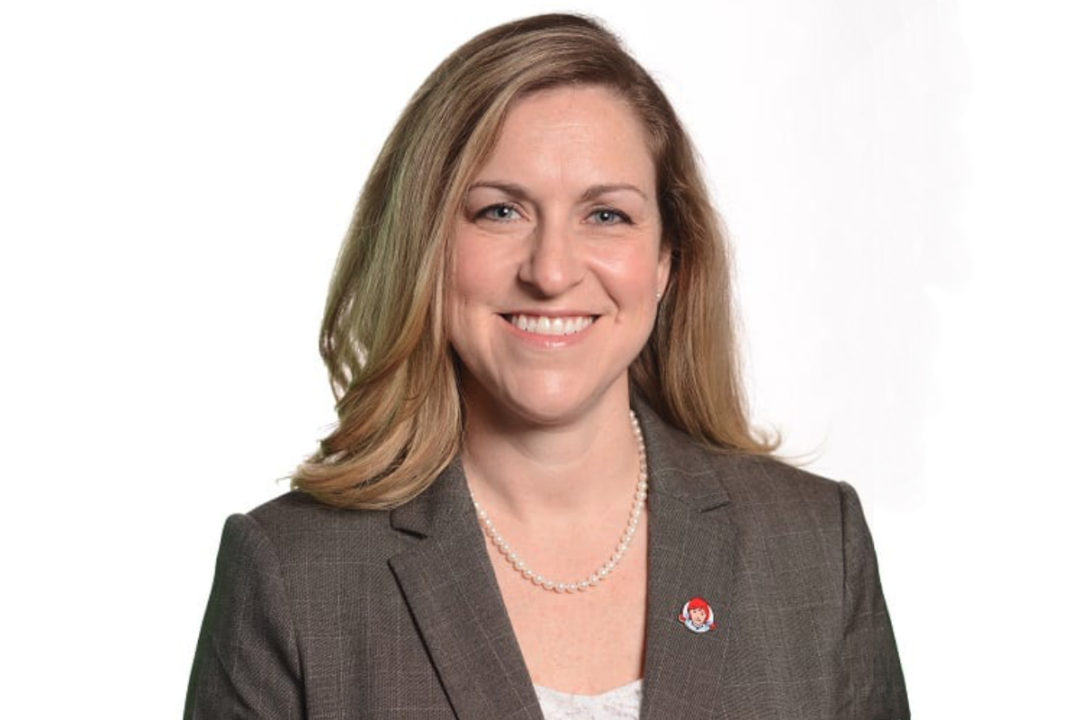Lippe Taylor 25 Feb 2022 // 5:39PM GMT

Josh Earnest is the Senior Vice President and Chief Communications Officer for United Airlines, a position he’s held since 2018. Previously, Josh served as the 29th White House Press Secretary under President Barack Obama, an experience which was formidable for his approach to communications. He currently serves on the Board of Advisors of Let America Vote, an organization that aims to end voter suppression, founded by former Missouri Secretary of State Jason Kander. In this discussion with Lippe Taylor Group CEO Paul Dyer, Josh gets into everything from DEI to finding opportunity in a crisis. The two also cover Josh's tactics for keeping cool under extreme pressure and, of course, the lessons he learned while working with President Obama.
Listen to the entire conversation on Lippe Taylor’s Frictionless Marketing podcast, below.
Here are some key takeaways from this conversation with Josh.
Hire wartime communications leaders (or become one).
When Josh made the pivot in his career from politics (after being Press Secretary to the Obama Administration) to the corporate side, most brand executives he met with questioned whether his political experience would be relevant in their industry. This turned out to be shortsighted.
United, which was facing a communications crisis at the time, knew they needed to think differently if they were going to correct course. The combination of Josh’s fresh perspective and proven track record of operating rationally under pressure (there’s arguably no higher-pressure comms job than being a press secretary) turned out to be a killer combination and exactly what United needed.
Slow your body, and your brain will follow.
Josh’s former CEO publicly praised how well he is able to operate under extreme amounts of pressure. Josh attributes this to having both a generally low-key attitude and making a conscious effort to slow his body down when the stakes are high. Slowing the body down, he learned, slows the mind down, allowing one to think rationally, separate the urgent from the important, and prioritize accordingly. He cites this as a critical skill for making good decisions in the midst of a crisis.
Learn to write.
Of the many pieces of advice Josh offers to young, aspiring comms leaders, at the top of his list is learning how to write. Writing, he believes, is a skill that cannot be replaced by bots, no matter how good their algorithms get, and therefore is a skill that will always be needed in communications.
Paul Dyer: Josh, nice to be speaking with you.
Josh Earnest: Good to see you, Paul. How are you this morning?
PD: I'm doing very well, Thank you. So, I see behind you a picture of what looks like probably you and your family with Barack Obama. And I'm very curious about how this background working as a Press Secretary in the Obama Administration prepared you for the work you do today at United.
JE: When I was working in government and thinking about the next stage in my career after I'd left the White House, I had conversations with some business leaders where it was clear that we were walking away from that conversation and the other person was thinking, "He seems like a pretty smart guy with an interesting background, but what's he going to do to help me with my business?" It made clear to me that I needed to find the right opportunity with a business executive who would think to themselves, "I've got a whole bunch of people who work for me who are experts in my industry. What I need is somebody who has had the experience of the rough and tumble of public relations and dealing with the media, and trying to drive a public argument about what you stand for, about what you believe in, and inspire people to join.”
That is very much what my experience in government was about: trying to educate and inform the American public (and in some cases, the world) about what President Obama was thinking and doing, why those things were priorities, and why we had some confidence that what we were trying to do just might work. It turns out those are the same kinds of questions that people have for companies like airlines. United was at a very challenging point in its history when I joined. It had been through a couple of very public controversies, which raised public doubts about the leadership of the company. Fair or not, that was just how it played.
I remember one conversation I had with Oscar Munoz, who was the CEO at the time. When I did a second interview with him, he looked at me and he said, "Josh, why are you interested in this job?" I said, "There are lots of reasons. But I think at the end of the day, the reason I want this job is because I think I can help.”
I said, "Oscar, you've got tens of thousands of people who spent their career in the airline industry, who know really well how to run a really good airline. But I bring some background in helping you, and this company, communicate to the public about why the things that you're doing just might work to make this a better airline." It created an opening for me here at United that's worked out beautifully, because even though I don't have the decades of experience that others do in the airline industry, it gave me the opportunity to have a seat at the table to try to help influence the decisions that we're making every day to help United fulfill its incredible potential.
PD: Can you elaborate further on the importance of having a seat at the table as a comms executive, versus not?
JE: For me, it's mattered in a couple of different ways. From the first day, I had an open line of communication with the CEO, and that was really important. I didn't report directly to the CEO. I reported to the person that is now the President of the company, but he's somebody who has a lot of influence and ended up being a really good ambassador for me. Brett Hart is our President, and he was somebody who cleared the way for me and helped me get my footing here at the airline and to get to know the personalities, to understand the context in which some of the conversations were happening. So having that line of communication to the CEO, but also having an ambassador to lead the way for me, was really important.
But the other thing that also became really important was that, after being at the company for a little over a year, I joined the executive team. What that did was put me literally in a seat at the table when the leaders of the company are getting together talking about the important decisions that we need to make. Being around for those decisions at the front end--and certainly, being able to shape those decisions a little bit--but also understanding how those decisions were made, are essential to effectively making a case to the public about why those decisions were made.
Ultimately, I think that has been a really important part of the success that we've had over the last couple of years, talking about what United has done, including through the worst crisis that we've ever faced in our 95-year history.
PD: There's a headline from PR Week that has got to be the most career-affirming headline I have ever seen. It says, "How Josh Earnest has United Airlines back on solid ground." Can you tell us what you did to get United Airlines back on solid ground, and what you learned in the process?
JE: Yeah, the first thing that I thought when I read that was that the headline writer was giving me way too much credit, but I'll take it.
PD: Of course, it's great.
JE: I would not have had anywhere near the success that I have enjoyed at United if we didn't actually have a good story to tell. People are vulnerable when they're traveling. They're sitting on that plane, and they are counting on us to get them where they're going, to do it safely, to do it on time, to get their bags there, and to make it as comfortable as possible. If any of that goes wrong, there's not really that much that an individual passenger can do about it. So people do feel vulnerable when they're traveling with us, which is why we take such great responsibility for taking care of them. So the point is, there's no amount of spinning or sloganeering or creative marketing that would change people's minds if we weren't getting all that stuff right, or at least doing much better and creatively solving the problems that invariably come up in such a logistically complicated operation. So that's the first thing.
The second thing is, there was very much a willingness on the part of United Airlines (because of the challenges and controversies that they'd had to soldier through before) to try things differently. That's what made them so open to somebody that had never worked in the airline business before. I'd never had a corporate job before, so I came in with a very different perspective and there was very much a willingness on the part of the leadership of this company to sit back and say, "We should try something different. What we've been doing before just hasn't gotten us the results that we're looking for." So a willingness to try some different things has really paid off, and it has meant that the approach that I've brought is consistent with the leadership approach of people like Oscar and Scott and Brett who are running the company.
PD: One of your former CEOs, Oscar Munoz, said, "Josh has thrived when the stakes are the highest and the margin for error is the smallest.” Can you talk about the skill sets or the ways of thinking in high-pressure situations to ensure that you're not either overreacting or under-reacting in the moment?
JE: I'm just a lower-key guy. So I have not found it to be especially hard in those kinds of environments to keep my cool. But like everybody, in those high-pressure moments, your brain starts moving really quickly. What I learned is to recognize when that happens and slow my brain down. When I did the daily briefings at the White House in the West Wing, it would not be uncommon to be in a frenzy during the last 15 minutes, making sure that I prepped for all the last-minute questions that might come up in the briefing.
We'd always get a two-minute warning, so the reporters would know to be in their seats, and in that time I would straighten my tie, make sure I had my notes in order, and then I would very intentionally walk slowly from my office, step-by-step, methodically, into the briefing room. By slowing my physical movements, it slowed down my brain too. And that idea of just slowing down all these rapid thoughts that come into mind helped me think much more clearly, and helped me keep my eyes on the priorities.
I think that's often the hardest thing in a crisis; the most urgent or emergent thing can sometimes be confused for the most important thing. Being able to clearly assess what's most important is a really critical skill to making good decisions in the midst of a crisis.
PD: It sounds to me like you're unveiling a pretty substantial DEI commitment. Can you tell us a little bit about that?
JE: Yeah. At the end of January, we will be doing the grand opening of United Aviate Academy. This is a pilot training facility that we purchased in Goodyear, Arizona. United is the only major U.S. airline that owns our own pilot training facility. One of the decisions that we made and announced last year was that coming out of the COVID crisis, one of the things that we need to do to really fulfill our potential as an airline is, we need to get bigger. We need to have more planes. We need to have bigger planes to provide better service to our customers, and really capitalize on some of the strategic advantages that we have.
If you get more planes, you need more pilots. Now, that comes at the same time that a lot of pilots (understandably, in the midst of the crisis) took a voluntary retirement. The other challenge that we have in the industry is there's a mandatory retirement age. So when you combine those three factors together--the number of voluntary retirements that took place, the mandatory retirement age, and our ambition to grow as an airline--we're under a ton of pressure to make sure we've got enough pilots to fly in the airline that we want to build.
So one element of our strategy is to open up our own training academy to train pilots from the beginning of their career in the United way, with world-class training and safety standards, plus a bunch of customer service standards that we put in place for pilots as well, and then, obviously, all the kinds of technical skills that we want pilots to have. But we went a step further and said, "There's something else that we need to address here, which is, that if you take a look at the percentage of people of color who choose a career as a professional commercial aviation pilot, the numbers are astonishingly low." As I recall, United has the highest percent of people of color who serve as airline pilots, and yet that percentage is in the single digits. It's astounding.
PD: Wow.
JE: So at our Aviate Academy in Arizona, over the next 10 years, or by the end of the decade, we are hoping to train 5,000 pilots, so about 500 pilots a year. And we made a commitment that half of the students who matriculate to the academy will be women or people of color.
PD: That is a big difference, from single digits to half!
JE: It could have a profound change, not just on our company, but on the industry. The thing we have to recognize is that American Airlines, Delta Airlines, Southwest Airlines, they're also trying to recruit pilots for the same reasons that we are. So the competition for good pilot talent is as high as it's ever been. If our response to that is to just keep going to the same places and trying to recruit the same kind of people, that's not likely to be a successful strategy. So we need to expand the scope and think a little bit about, "How can we get people who may not have previously considered a career as a commercial airline pilot to do so?" To think about all of the incredible pay and benefits, the union protections, the opportunity to see the world--this is an incredible career for people. Let's go invite people who may not have considered that career in the past.
PD: That’s really very exciting! One final question; what is your advice for up-and-comers in the industry, in terms of mindsets that they should embrace or skills they should pursue?
JE: Two things come to mind. The first is, especially early in your career, it's important to work for causes or people or institutions that you genuinely believe in, or that you're genuinely interested in, or both. You shouldn't have to make the kinds of sacrifices where you're just like, "Well, at least it's a paycheck." That is not likely to get people down the right path. So really thinking about, "What are the things that I find genuinely intellectually interesting? What do I want to go learn about? What are the industries that I think are fascinating?" Or, given my political background and my bias, "Who are the candidates out there that I think are doing really interesting work, that are fighting for the kinds of things that I genuinely believe in?”
The second thing is, for all of the significant advances in technology, we are still nowhere close to replacing the ability of a human being to write really well. There is just no substitute for that. So, young people who think about a career in communications: really focus on your writing skills. Choose courses in college where you're going to be asked to do a lot of writing; look for opportunities earlier in your career where you can be responsible for writing or drafting things.
Even better, if you have an opportunity to work for somebody you respect as a writer and you have a reporting relationship, where you're taking a first draft, and then you're watching that person edit your work--that is an incredible way to learn. There's no shortcut for going in and doing it every day; and writing every day is a skill that will never go out of style. If there's somebody that can show me that they are a really good writer, we are going to find a place for them on our team. That is an incredibly valuable skill. So having that credential, having that skill and keeping it sharp, is a great way for you to not just find opportunities early in your career, but to ensure that you've got growth opportunities over the course of your career.
That ability to put something down on paper, and do it quickly and clearly and persuasively, is just a hugely important skill. For all of the advances in technology, there's nothing in technology that replaces the ability to do that.
PD: Totally agree. Josh, thank you so much.
JE: Thanks for the opportunity today, Paul.


































.jpg)














